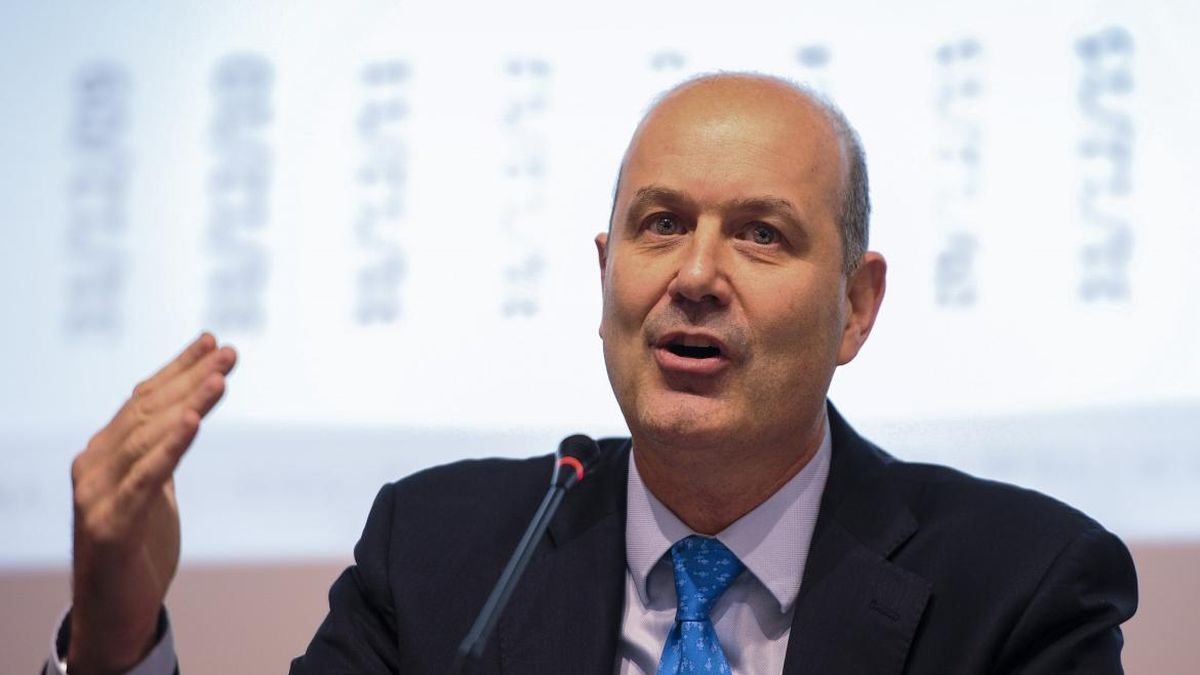In two years, we Argentines had once again become financial subjects. After 13 years of autonomy from the IMF, we had returned with an attitude of unconditional surrender. Appadurai explains that the financial system – the same one that collapsed in 2008 – rose and expanded, based on a form that is in crisis: “the contract”, in which the two parties agree on terms under the premise that they fulfill what was promised. Appadurai sees there a real revolution in the history of capitalism: the most lucrative contracts are no longer those in which both parties honor the initial agreement, but those where one party earns huge sums if the other breaks its promises. The clearest example is the extraordinary profit of the local vulture and caracara funds, thanks to non-compliance, in December 2001. As of December 10, 2015, a new default would be drawn up, which would still generate a “surcharge” to finance the salaries and golf club of IMF officials.
Beyond that we can all give opinions, what you cannot do is have your own “reality”. And the evidence prevailed once again, for about wishes, marketing and he most extraordinary media shielding that a government has had, since the return of democracy. Argentine stocks were destroyed on Wall Street, bonds fell and country risk rose, deviating from the average of the countries in the region, except for Venezuela. The argentinian shares that traded in NYat that time they showed falls of between 20 to 35% compared to November 2017while Argentine bonds fell between 8 and 17 dollars, reaching the 100 year bond a minimum of 85.75 cents on the dollar.
The vulnerabilities to which the Macri government had submitted -in the event that an exogenous shock arrived-, a slight rate hike in the US-had revealed it. It is that the inexperienced or naive financial opening, fiercely dollarizing the public debt could collide with an announced rate hike in the US. The correction of the Federal Reserve interest rate was a consequence of the advance of the economic recovery and the expansive effects of Donald Trump’s fiscal policy, in an economy that was at full employment, with an unemployment rate of 3.9% (half of Argentina).
That slight change in external conditions was by no means responsible for the crisis, but an exogenous trigger that would awaken the lion. Every possible mistake was made. The BCRA, of sturzenegger obsessed with inflation or the cheapness of the bicycle, it anchored the exchange rate, increasing devaluation expectations for two years. Exactly what he criticized of the Peronist government in a debate of “A dos Voces” by TN, with whom you sign the article. Then, he applied an ideologically inconsistent financial income tax for foreigners, in a scheme that had been favorable to the “timba”. Investors were predictably getting rid of their Lebacs to migrate to dollars.
We have been insisting on the fragility projected by the economic policy of the Macri administration, since he took office. A high interest rate setting monetary policy by itself is not effective in lowering the inflation rate; In this approach, it is an incomplete anti-inflationary recessionary strategy, which was blurred on December 28, in the famous public conference.
Fiscal policy was in no way gradualist in overall spending in the first two years of his term, yet he did not show any progress, exchanging favors for checkbooks to governors and unionists, squandering the toughest social cuts and lowering taxes and withholdings. The primary deficit of 2017 was higher than that of 2015 and the total deficit (after interest payments on the debt) was much higher, being much higher.
To finance this high fiscal imbalance, the little machine was resorted to and the external debt that made Argentina “dependent on debt”, as it was not so many years ago. The free floating exchange rate policy was based on the false belief that the floating exchange rate would ensure macroeconomic stability, when in reality the floating exchange rate would have been the result of the fiscal and monetary policies that were implemented in a monetarist or neo-quantitative theoretical framework.
To the configuration of economic policy it was necessary to add the deficit of the trade balance and the current account of the balance of payments, with exports that grew little and imports that rose a lot, dollars escaping above the financial ones that entered. Argentina had the highest level of twin deficits in the last 35 years. Once the investors and financiers financing twin deficits realized the extreme macroeconomic vulnerability, they understood that they had to take the profits from Lebacs and get out. The cordiality that President Macri apparently generated abroad was not useful at all, his pro-market vision of him, the industrious arguments of the BCRA were not enough. Investors realized that the BCRA had gone into mode: “LA CASA DE PAPEL”. Witchcraft and Zen Buddhism no longer helped.
The precarious conditions that hung on pins explained the end of a period. The season of “dances and yellow balloons” had come to an endand the Macri government had failed to take advantage of the trust and patience shown by the opposition, unions and social movements.
The markets do not operate like a bottomless pit, and since January 2018 they were not willing to finance the inconsistent economic program. Therefore, to continue financing, Dujovne left unexpectedly and in a hurry without direct air tickets and waiting 36 hours for 40 minutes to attend the International Monetary Fund. The level of incompetence with which everything was done, was unprecedented.
Figures were released and they made him put his face to the president Macri, to Lilita Carrió; ignoring that a multilateral credit organization does not have its board of directors waiting for clients in an office to make hasty decisions. Not even in the official banks in Argentina, the directors are there every day. By the way, during the Macri government, less. The IMF board does not meet frequently. Mrs. Lagarde was a good hostess, but she alone did not decide anything. If that was the plan, they put the cart before the horse. They had six months of time and they were spherical. They had chosen to turn to the IMF in a panic in the middle of the financial crisis that should have been a simple bullfight, or was it a soap opera. Or both.
Now we were going for a “stand by” loan, a line with the IMF conditionalities and the monitoring of goal compliance. In 2017, the IMF officials themselves advised that Argentina request some preventive line. It was likely that the “best team of the last 50 years” would decide overact, to apply new rate increases. The IMF was the ideal scapegoat to affirm tariffs. They combined interest rate hikes, forced banks to sell 2/3 of their dollar holdings, made unfortunate interventions in the futures market, and made a surprise announcement of IMF assistance, all possible inappropriate measures to dispel implausible uncertainty. incentivized.
On a day in May $647 billion in Lebacs were due. The existing scenario could worsen. Changes were necessary in the cabinet, “the best team of the last 50 years” could not be maintained because it generated a tragedy. In this context, with a loss of confidence in the markets and assistance from the IMF, they were going to adjust the fiscal deficit more, so it was logical to abandon the free floating regime and choose an exchange rate management regime trying to maintain a peso more devalued.
Now like this, a positive real interest rate was coming to generate a recession that would help prevent the transfer of the rise in the dollar to prices. Thus low economic growth was expected, there was no need to be a fortune teller. We entered stagflation (inflation with stagnation), lower economic growth, more inflation, a greater fiscal adjustment, a greater real devaluation of the exchange rate, more unemployment and a fall in wages.
In 2018 we had not requested a loan from the IMF for 13 years. Even Dujovne with his little sign on the TN news channel: “Let’s not go back to the IMF”, he rejected it a few months before going. Returning to the IMF implied a pusillanimityrarely seen. They did not even trust themselves, as can be deduced from the money of the ministers that remained abroad.
Arjun Appadurai sought to identify the new sources of profit through the risk left by massive destruction. Since 2018 we would have to be attentive to the CDS (Credit Default Swap) -bets against Argentine titles-, which had begun to escalate, anticipating and betting on a new default at some point. The CDS reopened the business of non-compliance, by eroding the base of the loans, payment promises that would not be fulfilled, where those who were already betting against the country will benefit extraordinarily. – Do you think that againYoArgentines betting against Argentina? – We do not know.
Executive Director of Fundación Esperanza. Graduate Professor UBA and Masters in private universities. Master in International Economic Policy, Doctor in Political Science, author of 6 books. @PabloTigani
Source: Ambito
David William is a talented author who has made a name for himself in the world of writing. He is a professional author who writes on a wide range of topics, from general interest to opinion news. David is currently working as a writer at 24 hours worlds where he brings his unique perspective and in-depth research to his articles, making them both informative and engaging.




